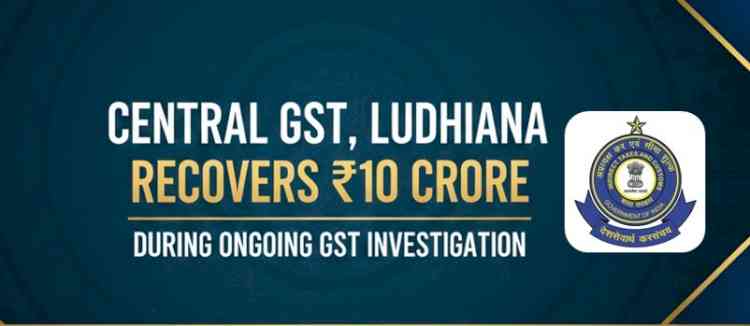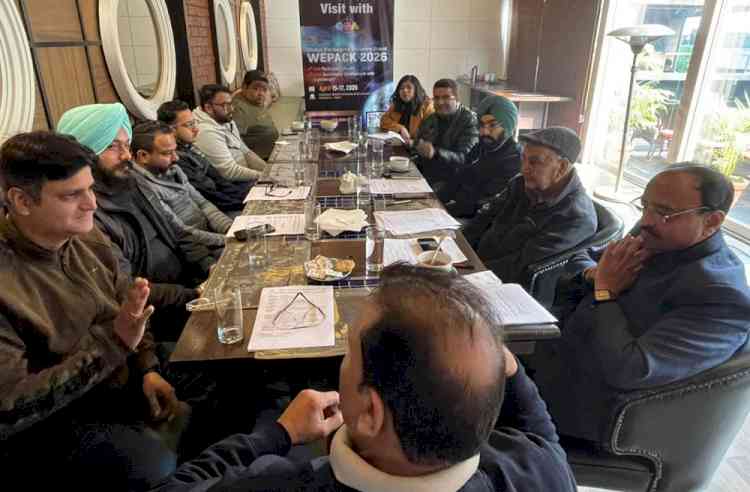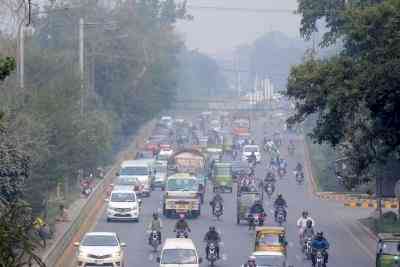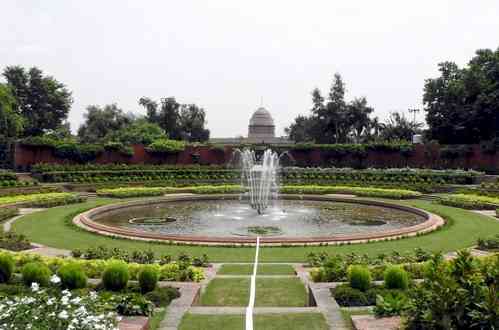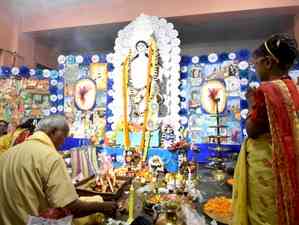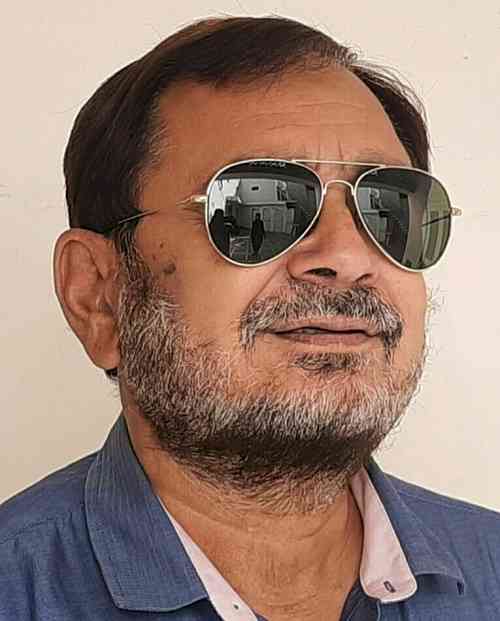Farmers Convening in Ludhiana Charts a Sustainable Path to Address Stubble Burning
Progressive farmers and solution providers from 18 villages came together at the Farmers Convening held here at the Punjab Agricultural University. One of the main aims behind them coming under one roof was to tackle the prevalent issue of Stubble burning through discussions on sustainable agricultural practices, particularly effective crop residue management.
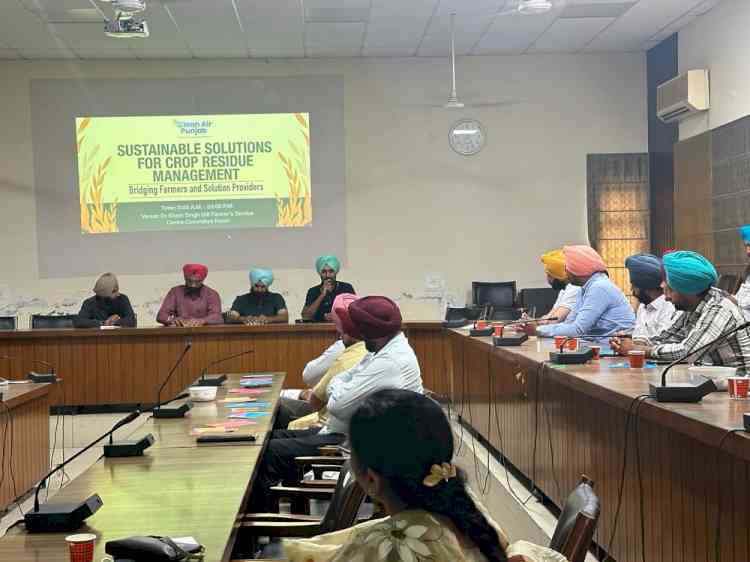
Ludhiana, March 27, 2024: Progressive farmers and solution providers from 18 villages came together at the Farmers Convening held here at the Punjab Agricultural University. One of the main aims behind them coming under one roof was to tackle the prevalent issue of Stubble burning through discussions on sustainable agricultural practices, particularly effective crop residue management.
Organised by Clean Air Punjab- a citizen’s collective working on the issue of Air Pollution, the convening saw over 65 farmers and thematic experts attending the convening.
During the convening, participants engaged in fruitful deliberations aimed at identifying challenges hindering the adoption of sustainable agricultural practices, exploring innovative solutions and alternative methodologies for crop residue management, and cultivating a landscape in harmony with ecological stewardship.
The highlight of the convergence was the development of a comprehensive roadmap for the implementation of sustainable crop residue management practices. This roadmap is expected to mitigate environmental degradation and enhance agricultural resilience, paving the way towards zero burning in agricultural landscapes.
Speaking at the event about the Agromet Advisory bulletin by the Meteorological Department, a crucial initiative that has been instrumental in boosting rice and wheat productivity while mitigating environmental risks for farmers, Dr Prabhjyot Kaur, Principal Scientist and Agrometeorology from Punjab Agricultural University said, “Through the Agri-Met Bulletin developed by the Met Department, we've empowered farmers to not only optimize economic benefits but also combat environmental and climate change risks. Leveraging this tool effectively can significantly reduce GHG emissions, fostering sustainable agriculture for generations to come. Additionally, by providing training and leveraging innovative apps developed by the Met Department, we are equipping farmers with the knowledge and tools necessary to adapt to changing climates and enhance their agricultural practices sustainably."
Palwinder Singh, a progressive farmer also known as Mausam Ka Doctor, highlighted the importance of alternate practices. Singh said, “If we refrain from burning paddy stubble, it improves soil health and fertility, reduces the need for fertilizers, lowers overall wheat crop costs, boosts yield, and enhances crop resilience to changing climatic conditions."
Sukhmeet Singh, founder of CropBurning.in and A2P Energy speaking at one of the panel discussions on solutions highlighted that in Punjab, the urgency to manage over 20 million tonnes of paddy straw within a narrow three-week window presents farmers with daunting challenges. “Pest threats from soil residue and space constraints exacerbate their plight, rendering them feeling helpless. However, amidst these challenges, through our NGO we launched a platform (www.CropBurning.in) to track crop residue fires across India,” he said.
According to Singh the residue instead of burning can be collected and converted to biofuels which replaces conventional fuel in thermal power plants and also in Industries. Furthermore, our initiative empowers communities by fostering entrepreneurship, providing livelihoods to over 30 individuals per collection season.
Speaking on diversification, Gurbinder Singh Bajwa, a progressive farmer, emphasized that paddy stubble should not be burned. Crop diversification offers a viable alternative. He stressed, "Our mission should be to work towards a fire-free, puddle-free, paddy-free, poison-free Punjab."
The participants were introduced to Agromet by fostering interdisciplinary dialogues and cross-sectoral collaborations, the Farmers Convening successfully catalysed a shift towards regenerative agriculture, transcending traditional approaches.


 City Air News
City Air News 
